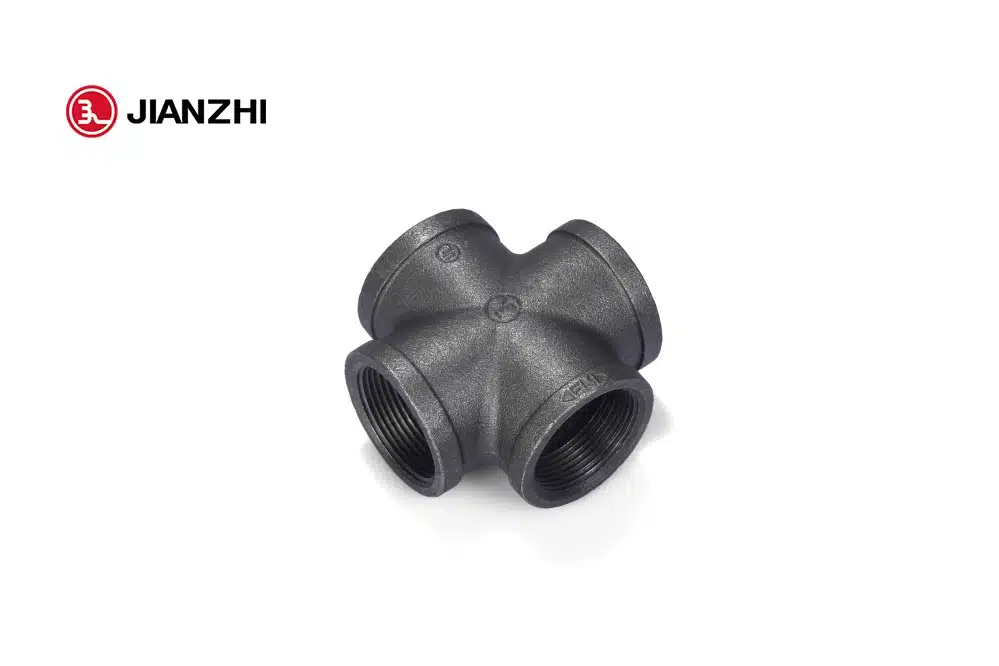Plumbers and contractors frequently come across situations where they need to join multiple pipes in one central location. This is where 4 way pipe connector comes in handy. As the name suggests, these fittings allow up to 4 pipes to be merged into one joint. Let’s examine the benefits of 4-way connectors and some of their common applications.

What is a 4-Way Pipe Connector?
A 4-way pipe connector is a fitting that joins 4 separate pipes into one interchange. It typically consists of 4 female-threaded ports extending from a central hub. Pipes with male threads can then be screwed into each port for a secure 4-way connection.
4-way fittings are commonly made from malleable iron, galvanized steel, brass or stainless steel. Iron and steel 4-way connectors are most often used for heavy industrial purposes, while brass or stainless steel fits light commercial and residential applications. Plastic 4-way fittings are also available but lack the durability for high-pressure piping systems.
Benefits of 4-Way Connectors
There are many scenarios where 4-way pipe connectors offer major benefits:
- Simplifies complex pipe routing – A 4-way junction eliminates the need for multiple elbows, couplings and tees to merge 4 pipes. This saves time and cost.
- Reduces potential leak points – With a 4-way connector, 4 pipes join through 1 leakproof hub rather than 4 couplings. Fewer joints means fewer opportunities for leaks.
- Enables convenient servicing – A 4-way fitting allows easy access to 4 separate line Sections from one location. This facilitates inspections, cleanouts, repairs and modifications.
- Compact size – 4-way connectors take up less space than joining 4 pipes with individual fittings. This allows efficient use of tight spaces.
- Versatile orientations – 4-way hubs allow connection of pipes from various angles. This provides flexibility in pipe routing options.
- Balances pressure and flow – The central hub design equalizes force and velocity coming from multiple pipe lines. This avoids imbalanced loads.
Common Applications
Here are some of the most common uses for 4-way pipe connectors across various industries:
- Plumbing – 4-way fittings allow connecting hot water, cold water, drain and vent lines at one convenient point. This simplifies under-sink or under-tub routing.
- HVAC – HVAC contractors use 4-way connectors to link the supply, return, condensate and refrigerant lines for air handlers and chillers.
- Fire Protection – Fire sprinkler installers use 4-way fittings to connect main and branch piping for wet standpipe systems. This allows sprinklers on each floor to be fed from one riser.
- Compressed Air – Compressed air systems utilize 4-way fittings to connect main header piping with distribution lines running to equipment drops.
- Gas Piping – Residential and commercial gas piping often features 4-way connections linking the supply, test, vent and drip legs lines.
- Hydronic Heating – Hydronic or radiant heating systems employ 4-way tees to join the supply header, return header, supply riser and return riser.
- Municipal Water – Water utilities access underground piping through 4-way cross fittings connected to the main, gate valve, bypass and service branch.
The convenience and efficiency provided by 4-way fittings make them a staple component for engineers, contractors and system designers in almost every industry. New applications for this versatile connector continue to be discovered as technologies evolve.
Choosing Materials and Sizes
4-way pipe connectors are manufactured from copper, brass, malleable iron, galvanized steel or stainless steel. The optimal material depends on the type of piping system and operating conditions. Smaller diameter 4-way fittings up to 2” are typically made of brass or copper. Fittings larger than 2” are more often steel or iron. Stainless steel is chosen for the highest corrosion resistance.
It is critical to select a 4-way fitting with threads and pipe size matching the existing lines it will connect. A mismatch in sizes can prevent proper sealing and mating of the joint. Consult product spec sheets to identify appropriate materials and sizing when selecting a 4-way pipe connector.
In summary, the versatility and convenience provided by 4-way fittings make them an essential component for a broad range of residential, commercial and industrial piping applications. Understanding proper materials and sizing for the intended use ensures the 4-way connector performs safely and reliably.
